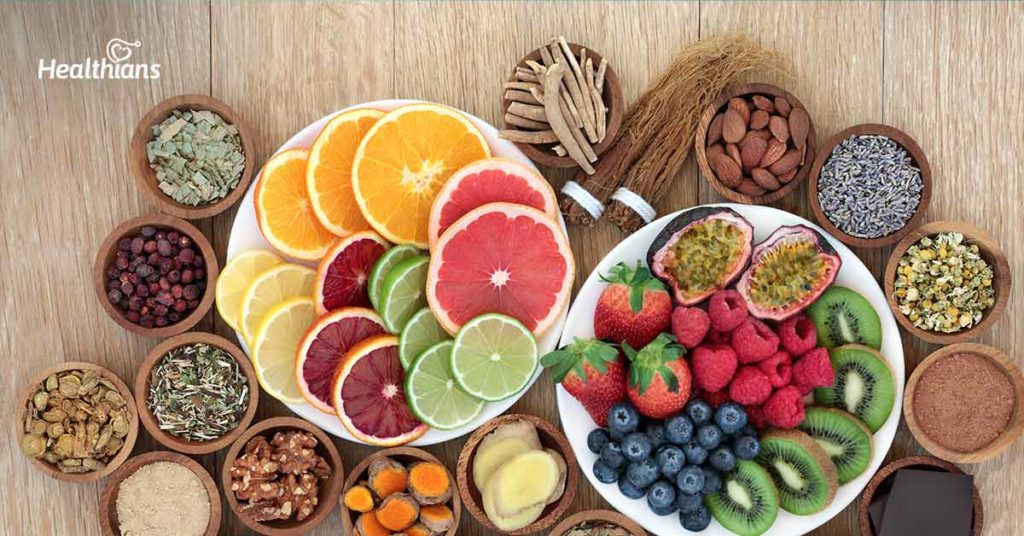Introduction
Having high cholesterol levels — especially bad cholesterol (LDL) — is a common health concern for many people, and it is linked to an increased risk of heart disease and stroke. While medication can be effective in lowering cholesterol levels, a few simple tweaks in your diet can also have a powerful effect on your cholesterol.
In this blog, we will explore some of the top foods to try in order to improve your numbers.
10 Healthy alternative foods to manage high cholesterol levels
1. Oatmeal, and oat bran
Oats are loaded with beta-glucan, a type of soluble fibre which has been shown to reduce your low-density lipoprotein (LDL) cholesterol, the ‘bad’ cholesterol. Soluble fibre works by binding to cholesterol in the gut and preventing it from being absorbed into the bloodstream. Eating just five to 10 grams or more of soluble fibre per day can help to lower cholesterol levels by up to 10%.
2. Nuts
Nuts, such as almonds, walnuts, and peanuts, are rich in healthy fats, protein, and fibre. A recent study concluded that a diet supplemented with a handful of nuts per day can help to lower cholesterol levels by up to 5%. Nuts can be used as garnishes in salads and pastas, or eaten as a snack.
3. Fruits
For people struggling with cholesterol issues, fruits, such as apples, oranges, and pears, have shown results to lower cholesterol levels. Fruits are high in pectin, a type of soluble fibre that may significantly manage both Good Cholesterol (HDL) and Bad Cholesterol (LDL) levels.
4. Beans
Beans, such as kidney beans, black beans, and lentils, contain an extraordinary nutritional combination for lowering Bad Cholesterol (LDL). They are high in both soluble and insoluble fibre and low in unsaturated fats. Eating just 1/2 cup of beans per day can help to lower cholesterol levels by up to 10%. Beans can be added to soups, stews, or eaten as a side dish.
5. Avocado
Avocado is a great source of healthy fats, including monounsaturated and polyunsaturated fats, which have been shown to lower cholesterol levels. Research suggests that eating just 1/2 an avocado per day can help to lower cholesterol levels by up to 15%. Avocado can be added to salads, sandwiches, or eaten as a side dish.
6. Fatty fish
Fatty fish, such as salmon, mackerel, tuna, and sardines, are rich in omega-3 fatty acids, which have been shown to lower triglycerides and raise Good Cholesterol (HDL) levels. Weekly fish consumption of at least two servings of fatty fish per week can help to lower cholesterol levels by up to 4%.
7. Dark chocolate
According to the experts, dark chocolate contains flavonoids, which has the ability to improve cholesterol levels by lowering Bad Cholesterol (LDL) levels and increasing Good Cholesterol (HDL) levels. Eating just one small square of dark chocolate (70% or higher cocoa content) per day can help to lower cholesterol levels by up to 5%.
8. Garlic
Garlic contains allicin, an active compound that has been shown to lower cholesterol levels by preventing cholesterol from sticking to the arterial walls. An intake of one clove of garlic per day can help to lower cholesterol levels by up to 9%.
9. Soy
Soy products, such as tofu, soy milk, and edamame, are rich in plant-based protein and fibre. Scientific evidence suggests that eating just 25 grams of soy protein per day can help to lower cholesterol levels by up to 5%.
10. Green tea
According to some research, green tea contains catechins, a type of antioxidant that has been shown to lower Bad Cholesterol (LDL) levels. It is also loaded with antioxidants, which work by reducing bad cholesterol in the blood and increasing the percentage of healthy cholesterol against bad cholesterol. Drinking at least two cups of green tea per day can help to lower cholesterol levels by up to 4%.
Final thoughts
High cholesterol can be a major health concern, but there are many alternative foods that can help to control cholesterol naturally. The Heart Foundation also recommends eating heart-healthy foods to control cholesterol naturally. Incorporating the above mentioned cholesterol-lowering foods into your diet can keep your cholesterol in a healthy range and reduce the risk of heart disease and stroke.





